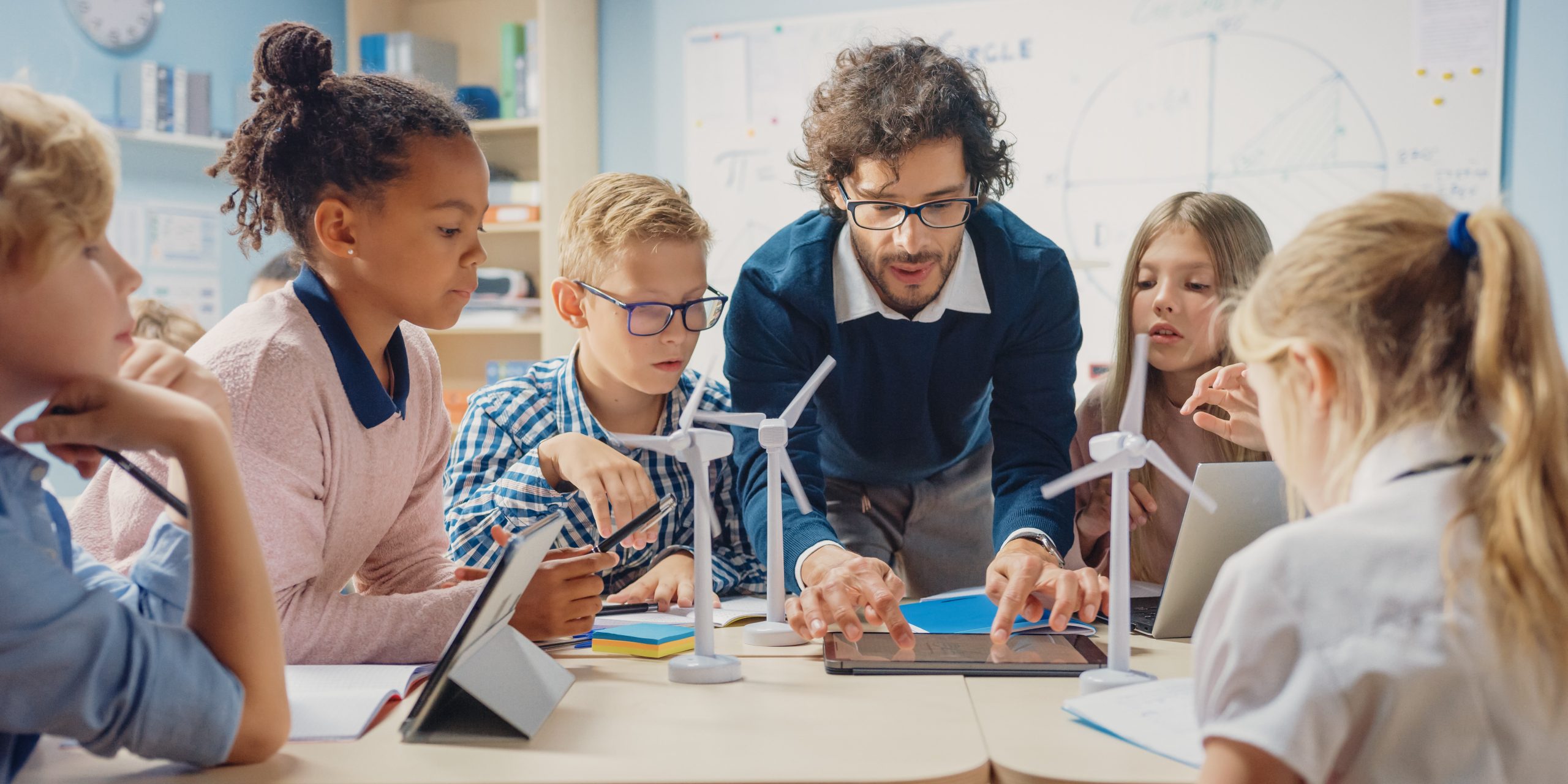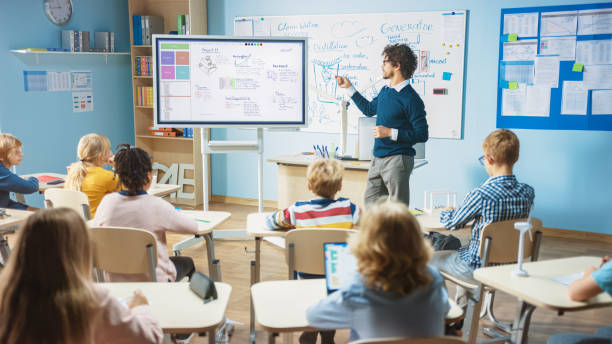Personalized Primary Science Tuition Singapore to Cater to Your Child’s Needs
Personalized Primary Science Tuition Singapore to Cater to Your Child’s Needs
Blog Article
Discovering the Various Mentor Approaches in Key Scientific Research Education And Learning Today
Inquiry-based knowing, hands-on experiments, and the assimilation of modern technology are redefining exactly how teachers involve young minds. In addition, collaborative techniques and set apart direction are being employed to cater to the varied needs of trainees, boosting both interaction and understanding.
Inquiry-Based Discovering
Inquiry-Based Learning (IBL) is an instructional technique that urges trainees to check out scientific concepts via wondering about, examination, and hands-on testing. This approach highlights the role of trainees as energetic individuals in their discovering, promoting vital thinking and problem-solving skills. By engaging with real-world concerns, pupils end up being curious and motivated, which enhances their understanding of scientific concepts.
In IBL, teachers work as facilitators, leading trainees as they browse their questions instead of providing information straight. This student-centered technique enables for distinction, fitting different learning styles and paces. Students establish skills in creating theories, making experiments, and examining information, which are essential for clinical proficiency.
In addition, IBL promotes cooperation amongst trainees, motivating them to share searchings for and ideas. This cumulative query promotes social skills and a sense of community within the classroom. The process of questions urges strength, as pupils find out to accept failure as a stepping stone toward understanding.
Hands-On Experiments
Hands-on experiments are a vital component of effective scientific research education, matching the principles of inquiry-based understanding. These experiments allow pupils to involve straight with clinical principles, cultivating a much deeper understanding through experiential understanding. By adjusting materials and observing outcomes, young learners can realize abstract theories in substantial means.
Such activities advertise vital reasoning and problem-solving abilities, as pupils hypothesize results, conduct experiments, and assess outcomes. This process encourages them to ask inquiries, refine their understanding, and create a clinical way of thinking. Hands-on experiments can be tailored to varied knowing designs, guaranteeing that all pupils have the opportunity to involve meaningfully with the content.
Additionally, hands-on experiments commonly motivate cooperation among peers, advertising teamwork and interaction abilities. Functioning in groups makes it possible for pupils to share concepts, talk about searchings for, and pick up from one another, which boosts their general instructional experience.
Including hands-on experiments right into the main science educational program not just enhances the finding out setting but additionally cultivates a lifelong interest in scientific research. By actively taking part in their education and learning, pupils are more probable to establish an enthusiasm for clinical questions that extends past the classroom.

Innovation Integration
Incorporating innovation right into primary science education has come to be significantly vital in promoting pupil interaction and enhancing finding out results. Making use of electronic tools, such as interactive simulations, online labs, and academic software program, supplies students with chances to explore clinical ideas in cutting-edge methods. These sources assist in a much deeper understanding of complex subjects by enabling students to envision and control variables that would certainly be unwise in a conventional class setup.
Furthermore, technology integration urges personalized learning experiences. Trainees can progress at their very own pace, revisiting tough principles with multimedia resources, which satisfy different knowing styles. This versatility not just sustains specific growth yet also grows a sense of autonomy in learners.
Additionally, technology acts as a bridge to real-world scientific research, linking pupils with existing research and expert payments. Accessibility to scientific journals and on the internet databases widens students' point of views on scientific query and promotes critical believing abilities.
Collaborative Learning
Joint learning plays an essential role in main science education and learning by fostering teamwork and communication skills amongst trainees. This method encourages students to work together, share understanding, and participate in analytical, which improves their understanding of scientific principles. By joining group tasks, trainees learn to verbalize their concepts, listen to diverse point of views, and negotiate remedies, all of which are vital skills in both real-world and scholastic contexts.

Study suggests that joint discovering can lead to increased inspiration and interaction in science subjects, as pupils locate enjoyment in common experiences (primary science tuition Singapore). Furthermore, this strategy prepares trainees for future joint endeavors, equipping them with the abilities essential for effective teamwork in college and professional settings. Ultimately, embracing collaborative discovering in main science education and learning can dramatically improve the discovering experience and advertise a much deeper understanding of clinical query
Differentiated Instruction

Differentiated direction can show up in numerous means, such as differing the web content, processes, or products of knowing. Instructors may make use of tiered tasks that supply varying levels of complexity, enabling trainees to function at their particular preparedness levels. Furthermore, adaptable organizing methods can assist in cooperation amongst pupils with various abilities, fostering peer learning.
Evaluation plays a critical role in this strategy, as it informs instruction and helps instructors recognize each pupil's one-of-a-kind requirements. Formative analyses, such as observations and tests, can lead instructors in changing their techniques to boost learning end results. primary science tuition Singapore. Eventually, by implementing differentiated guideline in key scientific research education, teachers can cultivate a more reliable and equitable knowing setting, encouraging all trainees to reach their complete capacity in recognizing scientific sensations
Conclusion
In summary, the diverse training strategies in primary science education and learning, consisting of inquiry-based knowing, hands-on experiments, innovation combination, collective understanding, and separated direction, jointly contribute to a much more efficient learning atmosphere. These approaches advertise vital reasoning, analytical skills, and a much deeper understanding of scientific ideas. By executing these techniques, teachers can develop helpful and engaging classrooms that address the different needs of students, ultimately cultivating a long-lasting rate of interest in scientific research and enhancing academic success.
Inquiry-Based Discovering (IBL) is an instructional approach that motivates pupils to explore clinical concepts resource through wondering about, investigation, and hands-on experimentation.Collaborative learning plays an important function in main science education and learning by promoting teamwork and communication abilities amongst pupils.Study shows that collaborative understanding can lead to increased motivation and involvement in scientific research topics, as students find satisfaction in common experiences.In cultivating a comprehensive learning setting, distinguished guideline arises as a crucial strategy to fit the diverse requirements and capabilities of trainees in key science education. Ultimately, by implementing differentiated direction in key science education and learning, educators can cultivate an extra fair and efficient understanding setting, empowering all trainees to reach their complete possibility in understanding clinical sensations.
Report this page